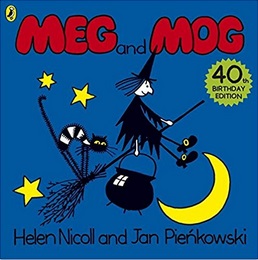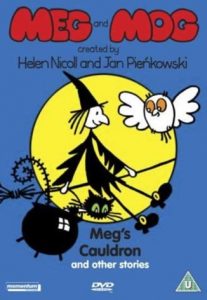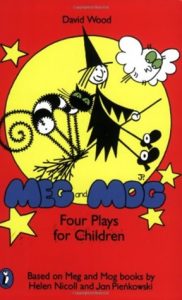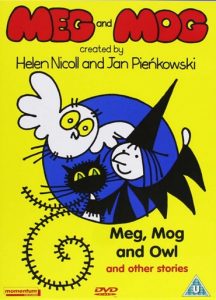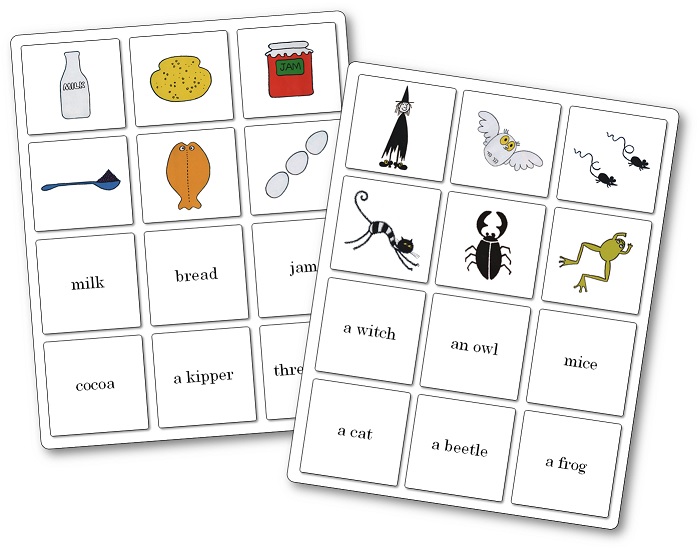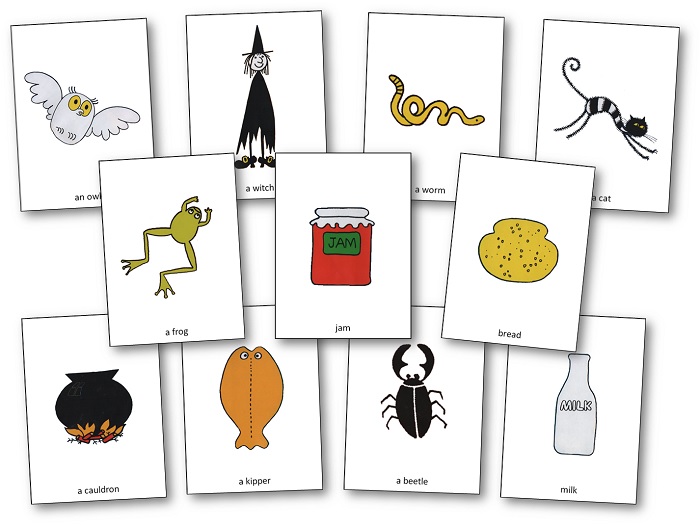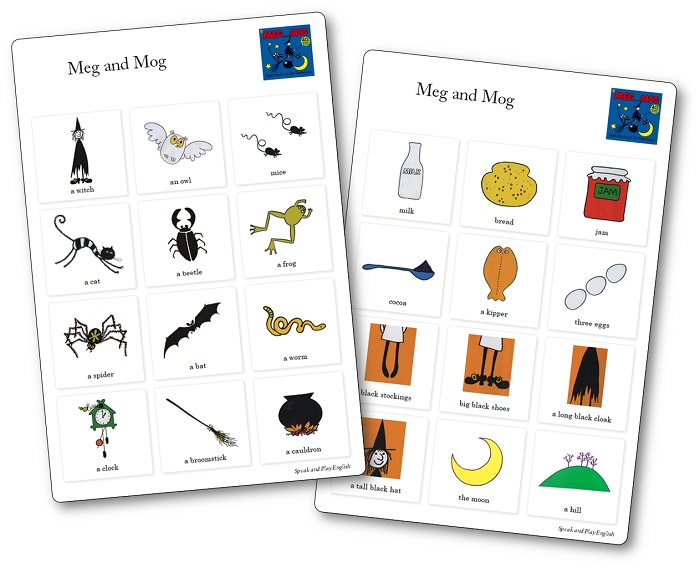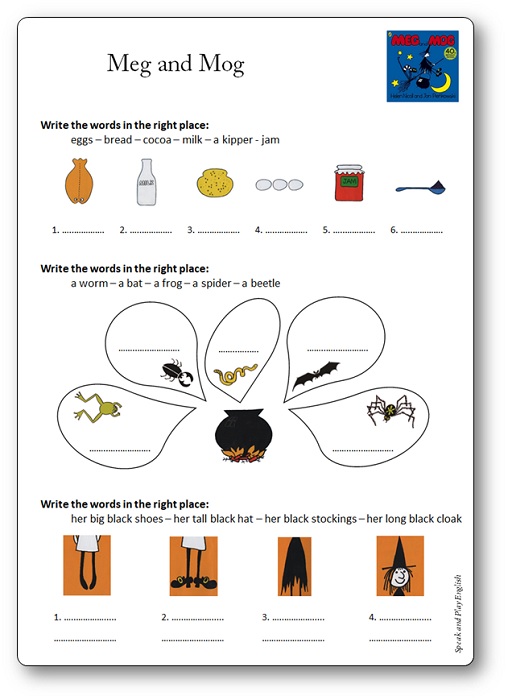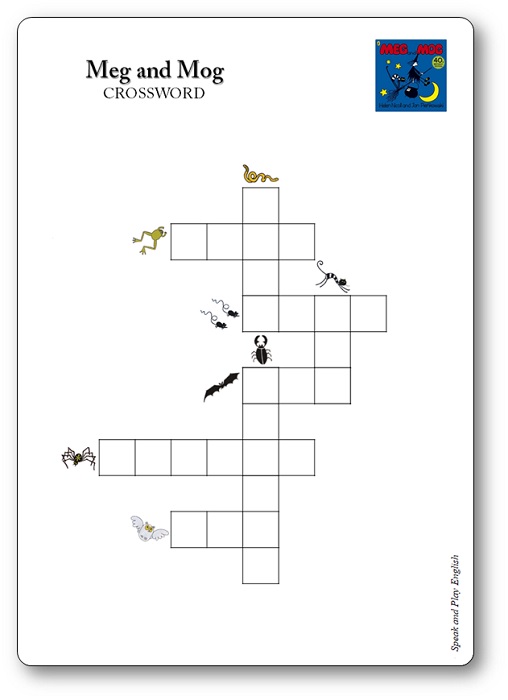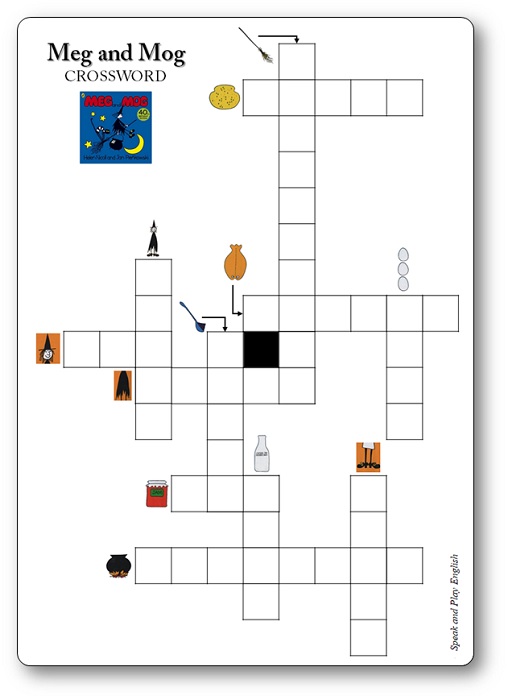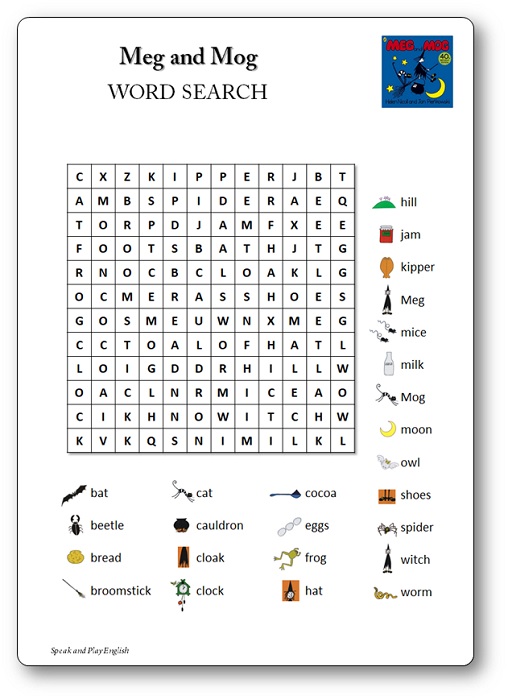[kkstarratings]
Title: Meg and Mog
Authors: Helen Nicoll and Jan Pieńkowski
Publisher: Puffin Books (1975)
Language: English
Themes: Halloween, animals, clothes, food
Age-range: infant-preschool, 4 – 8 years
Meg the witch and Mog her cat go off to a wild Hallowe’en party with all the other witches. The spell they cast goes off with a BANG! This picture book is the original story about Meg the witch, Mog the cat and Owl. They are the heroes of a series of children´s books written by Helen Nicoll and illustrated by Jan Pieńkowski. With its bold colours and pictures “Meg and Mog” is a perfect story book for toddlers.
Here are a set of activities and games to learn the vocabulary and to check the comprehension of the book “Meg and Mog“. Then you can have the students listen to and watch the story on YouTube. So join in the fun with Meg and Mog!
Culture and Vocabulary:
- clothes (stockings, shoes, cloak, hat)
- food and breakfast (eggs, bread, cocoa, milk, jam)
- Halloween (witch, cat, cauldron, spider, broomstick, make a spell, a spell party, frog, beetle, worm, bat, mouse/mice, abracadabra)
- house and furniture (bed, kitchen, stairs, chimney, cupboard)
- telling time (« At midnight », « At one o’clock »)
- nature (the sky, a hill, the moonlight, a bog)
- onomatopoeia words (« clip clop », « meow », « bang », « snap, crackle, pop »)
- expressions (« once upon a time », « fast asleep », « there was plenty of… », « yum yum », « prrrr », « mmm », « fancy that ! »)
- verbs (to hoot, to dress, to go down, to cook, to lie on, to tread on, to fly up, to meet, to land on, to make, to change into, to bring, to chase, to put in)
- adjectives (black, big, long, tall, fast, asleep)
- prepositions (up, out of, down, on, for, up, with, in, into)
- pronouns (something, plenty)
Grammar:
- position of adjectives – before a noun in English (« her tall black hat », her big black shoes »)
- irregular plural nouns (a mouse /mice)
- possessive adjective « her » (Explain that “her” is the female possessive adjective and replaces “Meg’s”)
- irregular verbs and phrasal verbs
Preterit : woke up (to wake up : irregular verb), got out (to get out, irregular verb),
Pluperfect : had brought
to put on, put into, she went , she trod on, she stirred, she flew up, she met, they landed on
Phonology:
- the -s at the end of words can be pronounced in different ways / s / or / z / (dress, Jess, Bess, Tess, Cress / shoes, friends, times)
- accents of words, phrases
- rhymes (Bess, Jess, Tess, Cress, Frog/bog, bat/hat)
Teaching suggestions:
- What is this? What do you eat? What are you wearing? How many…?
- using the vocabulary flashcards and ask the question “Whose… is this?” – using the possessive adjective « her »

